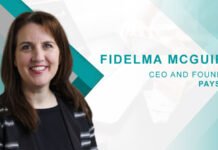Jacqueline, we’re delighted to have you at HRTech Cube! Can you please share your professional journey and what led you to focus on leadership development at Vantage Leadership Consulting?
My journey into leadership development was driven by a deep fascination with how great leaders create thriving organizations. After starting in industrial/organizational psychology, I saw firsthand how leadership quality directly impacts employee engagement and business outcomes. Now I can do what I am most passionate about – helping leaders be at their best.
The Leadership Development market is projected to double by 2033. What do you see as the most significant drivers of this growth?
The projected doubling of the leadership development market by 2033 reflects what I’m seeing as a perfect storm of challenges. Organizations are facing unprecedented complexity in managing hybrid workforces and multi-generational teams. Traditional approaches that worked yesterday simply aren’t sufficient for today’s leadership challenges. We’re also seeing a significant demographic shift with younger executives entering the C-suite, bringing fresh perspectives but requiring targeted support in their accelerated journey to the top.
How has the downsizing of internal HR teams post-COVID impacted the demand for external leadership development programs?
Post-pandemic HR team downsizing has created an interesting dynamic. While organizations are operating with streamlined HR functions, the need for leadership development hasn’t diminished—it’s actually intensified. This has led to a new hybrid development model that combines targeted external coaching, internal mentorship programs, and peer learning cohorts. Organizations are recognizing that they need both external expertise and internal contextual wisdom.
With organizations hiring or promoting less experienced individuals, what specific leadership skills or competencies are in highest demand?
The most pressing needs we’re seeing come from leaders facing increasingly complex challenges. Many leaders are experiencing profound isolation at the top. They need support in:
○ Navigating hybrid workforce dynamics
○ Managing multi-generational teams
○ Building confidence while maintaining humility
○ Finding trusted sounding boards for complex decisions
Younger professionals are increasingly stepping into high-level leadership roles. What unique challenges do these leaders face, and how can development programs address them?
Today’s C-suite increasingly includes executives in their 30s and early 40s. These younger leaders face unique challenges that require targeted support. They’re often navigating accelerated journeys to the top while dealing with heightened expectations such as making high-stakes decisions with less experience and managing teams that may include older, more seasoned employees. They also navigate the pressure to innovate quickly while maintaining company stability. The key is creating development programs that combine external coaching with internal mentorship. Peer learning is another way to provide a space for these leaders to connect, share experiences, and learn from one another, creating a network of support that helps them overcome challenges and thrive in their roles.
How do effective leadership development initiatives contribute to organizational resilience and long-term success?
Effective leadership development initiatives strengthen organizational resilience by building support systems that help leaders adapt and thrive. These systems include:
○ External coaching with internal mentorship: Combining external insights with organization-specific guidance helps leaders navigate challenges more effectively.
○ Peer learning communities: These groups foster collaboration and knowledge sharing, allowing leaders to learn from one another’s experiences.
○ Feedback loops: Continuous communication between coaches, leaders, and the organization ensures development aligns with both personal growth and organizational needs.
○ Pulse surveys: Regular surveys track progress and hold leaders accountable, ensuring leadership development stays on course.
What is your personal approach to staying ahead of emerging trends and ensuring leadership development programs remain relevant and impactful?
My approach to staying current involves deeply understanding the evolving needs of leaders. Through interviews and direct work with executives, I’ve seen how theoretical frameworks must be balanced with practical application. It’s crucial to understand both the business challenges and personal journeys of today’s leaders.
How do you see technology, such as AI or virtual reality, shaping the future of leadership training and development?
While technology plays an important role, the future of leadership development lies in precision matching and blended support systems. We’re seeing organizations move beyond the old approach of assigning coaches based on availability, instead considering specific growth edges, industry expertise, and leadership style compatibility.
What advice would you give to professionals looking to enhance their leadership skills and position themselves for growth opportunities?
For professionals looking to enhance their leadership skills and position themselves for growth, I recommend:
○ Seek feedback from multiple sources: Use an interview-based approach to gather insights from colleagues, mentors, and those you lead to get a comprehensive view of your strengths and areas for improvement.
○ Identify areas of under preparation: Reflect on situations where you felt unprepared to highlight areas for growth and focus your development efforts.
○ Create action plans from coaching: Turn feedback and coaching into specific, actionable steps to ensure continuous progress.
○ Share your learning journey with peers: Use peers for accountability and support to stay committed to your goals.
○ Think beyond immediate goals: Focus on long-term vision and how you can impact broader organizational and industry goals, not just short-term targets.
Looking ahead, what are your hopes or predictions for the future of leadership development, and what role does Vantage Leadership Consulting aim to play in this evolving space?
The future of leadership development isn’t just about growth—it’s about fundamentally rethinking how organizations approach leadership support. At Vantage, we’re focused on creating integrated development ecosystems that combine external expertise with internal wisdom. We believe in measuring progress through regular pulse surveys and ensuring accountability through clear feedback loops. We aim to be a trusted partner in helping organizations build resilient, agile leadership pipelines that not only meet today’s challenges but also prepare leaders for future opportunities.

Dr. Jacqueline Ackerman, Vantage Leadership Consulting
Jacqueline joined Vantage in 2002 and became a Senior Partner in 2013. She is passionate about developing effective people strategies and putting into effect practices that enable organizations to embrace a talent mindset and realize its benefits. Her core areas of expertise include team assessment and development, individual assessment and coaching, succession and talent management, and the design and implementation of leadership development programs. Jacqueline works with both privately held firms and public corporations, across diverse industries including utilities, mining, education, manufacturing and healthcare. She has authored articles, and presents at conferences in the areas of talent management and leadership development. She was instrumental in developing Vantage’s High Performance Team tool and manages the HPT practice area. Jacqueline has a Master’s degree and Ph.D. in Industrial/Organizational Psychology from Wayne State University and a Bachelor of Science with honors in Psychology from Purdue University. She is a member of several professional associations and was named 2013’s Woman of the Year by the National Association of Professional Women












